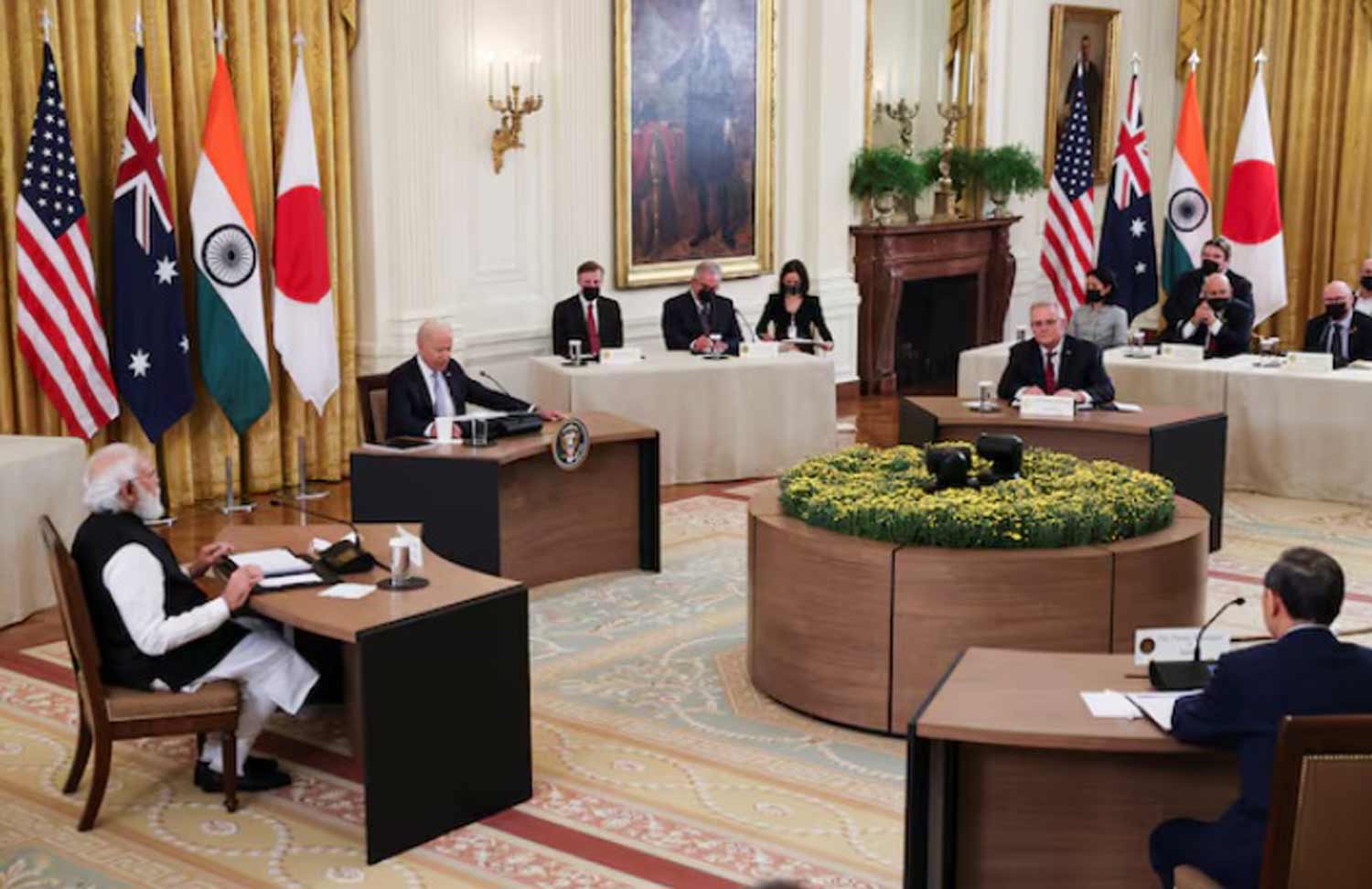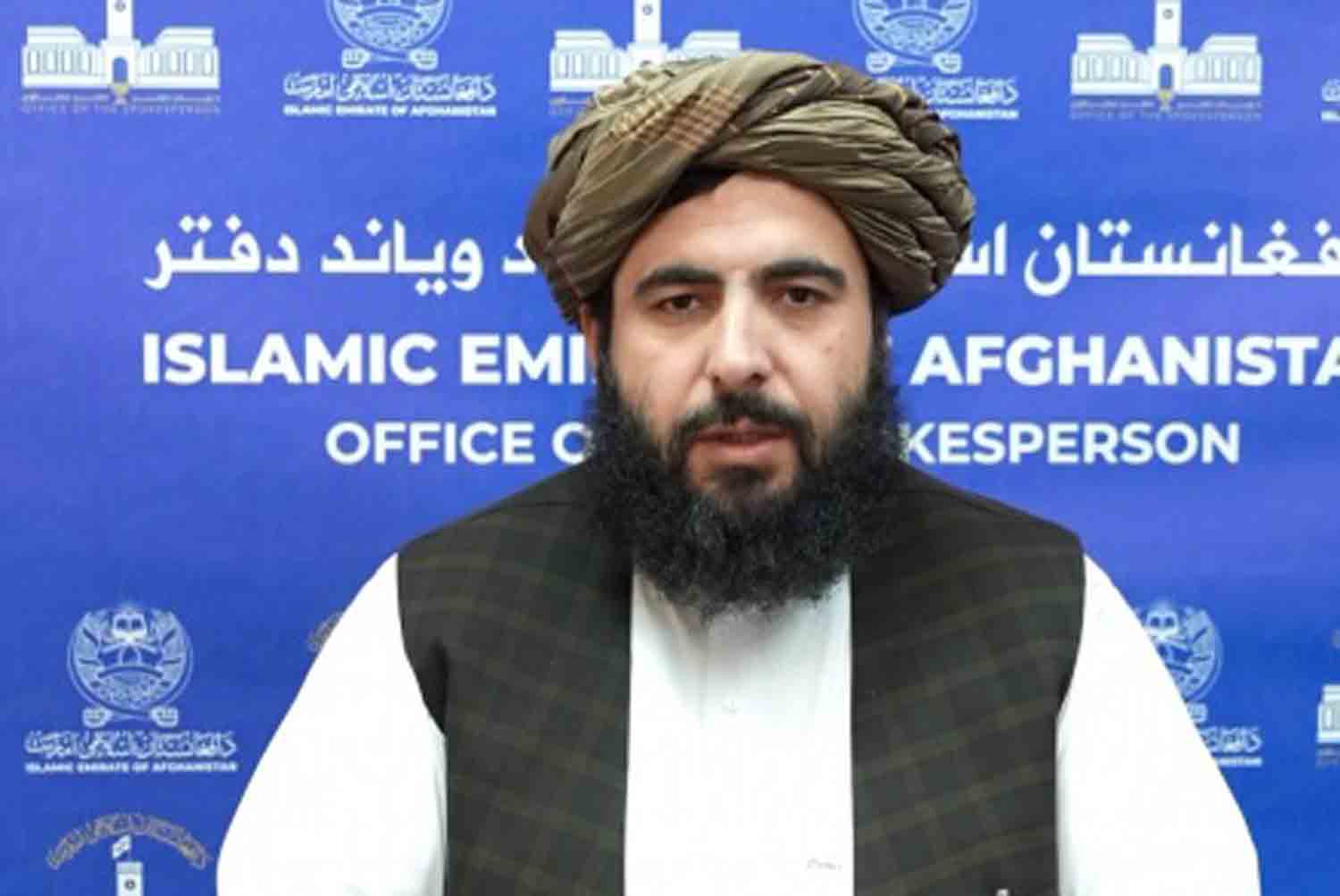Jake Sullivan, the departing U.S. national security adviser, is encouraging the incoming Trump administration to maintain President Joe Biden‘s approach of strengthening relationships with allies and partners in the Indo-Pacific region to address challenges posed by adversaries such as China and North Korea.
Sullivan stated, in response to a question from VOA during a roundtable with journalists on Friday, “The argument we will present is that the American presence in the region is exceptionally robust at this moment.”
He emphasized, “There should be more continuity than significant change regarding our Indo-Pacific strategy.” However, he expressed uncertainty about the actions of the incoming team.
Recognized as a key architect of the Biden administration’s Indo-Pacific strategy, Sullivan asserted that the president’s method is “yielding significant results” and cautioned that deviating from this path could “introduce risks.”
He did, however, concede that the administration has not made meaningful advancements toward the denuclearization of the Korean Peninsula.
With the threat from Pyongyang remaining as severe as ever, Sullivan pointed out critical developments: increased collaboration between North Korea and Russia, as well as a “wider alignment of competitors and adversaries — Russia, China, North Korea, Iran.”
He reiterated the administration’s caution against diminishing U.S. support for Kyiv, a move that President-elect Donald Trump has indicated he might pursue. Sullivan emphasized the significance of developments in Ukraine for the Indo-Pacific, noting that “China’s watching.”
Biden’s advisors have frequently expressed worries that a lack of Western commitment to strengthening Kyiv’s defenses could encourage China to emulate Russia’s actions and invade its smaller democratic neighbor, Taiwan, or to adopt a more aggressive stance regarding its contested claims in the South China Sea.
Bonnie Glaser, managing director of the German Marshall Fund’s Indo-Pacific Program, remarked on the rapid development of cooperation between Moscow and Pyongyang, with North Korea dispatching troops to assist Russia in its invasion of Ukraine, a partnership that is expected to grow.
“We have yet to see what military systems or technologies [Russian President Vladimir] Putin has pledged to provide to [North Korean leader] Kim [Jong Un],” she stated in an interview. “Beijing has not utilized its influence to halt this trend.”
Sullivan expressed assurance that the administration has “created a significant opportunity for the next team” to strengthen the U.S. position and has “altered the balance of power” in the Indo-Pacific.
Biden’s strategy involves establishing a network of alliances and partnerships, which includes strengthening collaboration with the Quad—an informal coalition comprising India, Australia, and Japan. Additionally, the AUKUS security agreement with the United Kingdom and Australia aims to equip Australia with nuclear-powered submarines to enhance regional maritime security.
Sullivan also emphasized the trilateral cooperation between the U.S., Japan, and South Korea, where these former rivals are now united in efforts to counter North Korea’s nuclear ambitions. Furthermore, collaboration among the U.S., Japan, and the Philippines is focused on addressing China’s assertiveness in the South China Sea.
Continuity or change
Given the likely adversarial nature of U.S.-China relations, it is anticipated that the incoming administration will maintain a consistent approach to China.
Trump has appointed two prominent figures known for their hardline stance on China to significant positions in his “America First” Cabinet: Senator Marco Rubio as his choice for secretary of state and Representative Mike Waltz, who is being considered as Sullivan’s successor.
However, Waltz recently issued a comprehensive directive to dismiss all national security personnel who have been assigned from other departments and agencies to serve in nonpartisan senior roles. He stated that these dismissals are intended to ensure complete alignment with Trump’s policy objectives.
The extent to which the president-elect will continue to staff the National Security Council with Trump loyalists remains uncertain, particularly regarding his strategy for deterring China through alliances.
Aaron David Miller, a senior fellow at the Carnegie Endowment for International Peace, noted that the first Trump administration perceived “multilateral alliances as more of a burden than a reality.” During his initial term, Trump withdrew the U.S. from several international organizations and agreements, including the Paris Climate Accord, the U.N. Human Rights Council, and the World Health Organization.
Miller emphasized that any alliances formed would need to be grounded in clear, specific quid pro quo arrangements.
Throughout his first term, Trump prioritized bilateral relationships, a strategy he may revert to. Zack Cooper, a senior fellow at the American Enterprise Institute, suggested that Trump might strengthen ties with influential conservative leaders, such as Indian Prime Minister Narendra Modi, while potentially downplaying trilateral partnerships like the U.S.-Japan-South Korea alliance, especially if a new administration in Seoul shifts away from Washington.
Cooper also pointed out that it remains uncertain whether Trump will adopt a confrontational stance toward China beyond economic issues. Key questions include whether the U.S. will take a less assertive approach to China’s actions in the Taiwan Strait and the South China Sea.
Cooper noted that Trump appears more inclined to engage with Chinese President Xi Jinping, particularly regarding trade matters. However, many within his administration are likely to advocate for a stringent approach concerning security and technology.
Shift in Trade Strategy
Analysts anticipate a notable shift in trade strategy, as Trump seems poised to implement protectionist policies, potentially using tariffs as punitive measures against both adversaries and regional allies, especially those with significant trade surpluses like Japan.
Trump is likely to reverse the Biden administration’s initiatives aimed at strengthening trade relations in the region. During his campaign, he pledged to dismantle the Indo-Pacific Economic Framework (IPEF), a 2022 agreement established by Biden, arguing that it would negatively impact American manufacturing and workers.
The IPEF was Biden’s strategy to enhance economic connections with Indo-Pacific nations, five years after Trump withdrew the U.S. from the Trans-Pacific Partnership, a key trade initiative from the Obama era, right after taking office.
This framework focuses on non-trade objectives such as enhancing supply chain resilience, ensuring secure digital infrastructure, and facilitating a sustainable transition to clean energy. It has faced criticism from various regional stakeholders for lacking market access provisions, especially as Beijing has expanded its economic influence through the Regional Comprehensive Economic Partnership, the largest regional free-trade agreement, encompassing nearly one-third of the global population and GDP.
Discover more from Defence Talks | Defense News Hub, Military Updates, Security Insights
Subscribe to get the latest posts sent to your email.





